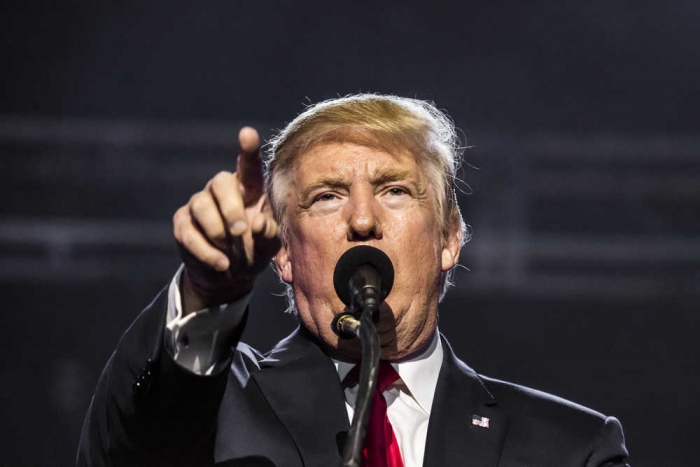As the state prepares to begin accepting applications for adult recreational marijuana business, contradictory state and federal positions on the legality of the industry continue to create confusion in the state.
In January, the Trump administration lifted an Obama-era policy that kept federal authorities from cracking down on the pot trade in states where the drug is legal. The new stance from U.S. Attorney General Jeff Sessions will let federal prosecutors in legal-marijuana states decide how aggressively to enforce federal law that outlaws the drug.
On the same day that Sessions announced the new stance, U.S. Attorney for Massachusetts Andrew Lelling said his office would pursue serious federal crimes involving marijuana, but did not directly address the state law or questions about whether it would impede in any way the establishment of commercial marijuana businesses.
“As the Justice Department has highlighted, medical studies confirm that marijuana is in fact a dangerous drug, and it is illegal under federal law,” Lelling said at the time. “As a result, our office will aggressively investigate and prosecute bulk cultivation and trafficking cases, and those who use the federal banking system illegally.”
The statement, however, also promised that “prosecutorial discretion” would be applied in all cases and that his office would meet with state and local officials to discuss marijuana enforcement.Many in the business of selling legal marijuana or creating the regulations to govern the burgeoning recreational industry have been reluctant to comment on the federal stance. One business said it didn’t want to put itself out as a target for enforcement.
Cannabis Control Commission Chairman Steven Hoffman said the the five-member commission was doing the job it was appointed to do by the state.
“I’m not going to speculate on what might happen on the federal level,” Hoffman said. “We are just doing the job we were appointed to do.”
Hoffman did say, though, that the commission is going to aggressively enforce its regulations.
“We want people to be successful in this business as long as they are doing the right thing with respect to public health and public safety,” he said.
New England Treatment Access, whose Northampton medical marijuana dispensary is western Massachusetts’ longest-operating, has previously declared an interest in expanding its offerings to recreational users.
“Our fundamental goal here is to be in unambiguous compliance with state law and regulations and that I think is the most responsible course of action for the regulated industry,” said Norton Arbelaez, NETA’s director of government affairs.
“We will continue to monitor the conversation between state and federal authorities and continue to do what we do every day — operate compliantly and try to help our patients every day with medical cannabis.”
That approach — total compliance with state and local regulations — may help them if the federal government decides to step in.
Walpole Chief of Police John Carmichael sits on the state’s Cannabis Advisory Board and serves as a co-chairman of the Massachusetts Chiefs of Police Association’s substance abuse committee. He said it will be up to the federal government to decide when, where and what they will enforce but regardless, they would have to prioritize.
“If you are working within the guidelines and the regulations, you probably have a better chance of that business surviving,” Carmichael said.
The differences between the state law and federal law put a strain on local law enforcement and the federal government, Carmichael said.
“Massachusetts law enforcement is bound by Massachusetts law, and our law has made it legal, and as such we will continue on doing what we are supposed to do as far as mandated reporting structure and all the regulations in place,” he said. “We will follow Massachusetts law and all the Massachusetts regulations that are in place.”
The discrepancy between state and federal laws isn’t the only issue when it comes to law enforcement. Keeping impaired drivers off the road, and correctly determining when a driver is impaired is another issue.
“The fact of the matter is, we don’t have a really great standard field sobriety test for OUI drugs as we do for alcohol. We don’t have the scientific support as we do for alcohol to process these cases,” Carmichael said. “We do have drug recognition experts in Massachusetts, we just don’t have enough. We will probably need twice as many.”
In addition to a lack of scientific support for testing, there is currently no law of implied consent for drug recognition experts, unlike when someone is suspected driving drunk.
Someone stopped and suspected of driving under the influence of drugs can refuse to take an assessment with a drug recognition expert and there is no repercussion. For a driver who is stopped and suspected to be under the influence of alcohol, a refusal of a breath test at a police station could result in a loss of license.
Even if someone has agreed to an assessment or a blood-draw for a suspected marijuana OUI, the state doesn’t have a limit on how much THC that person would have to have in their body to be impaired. States with legal recreational marijuana aren’t in agreement on the issue either.
credit:gazettenet.com













